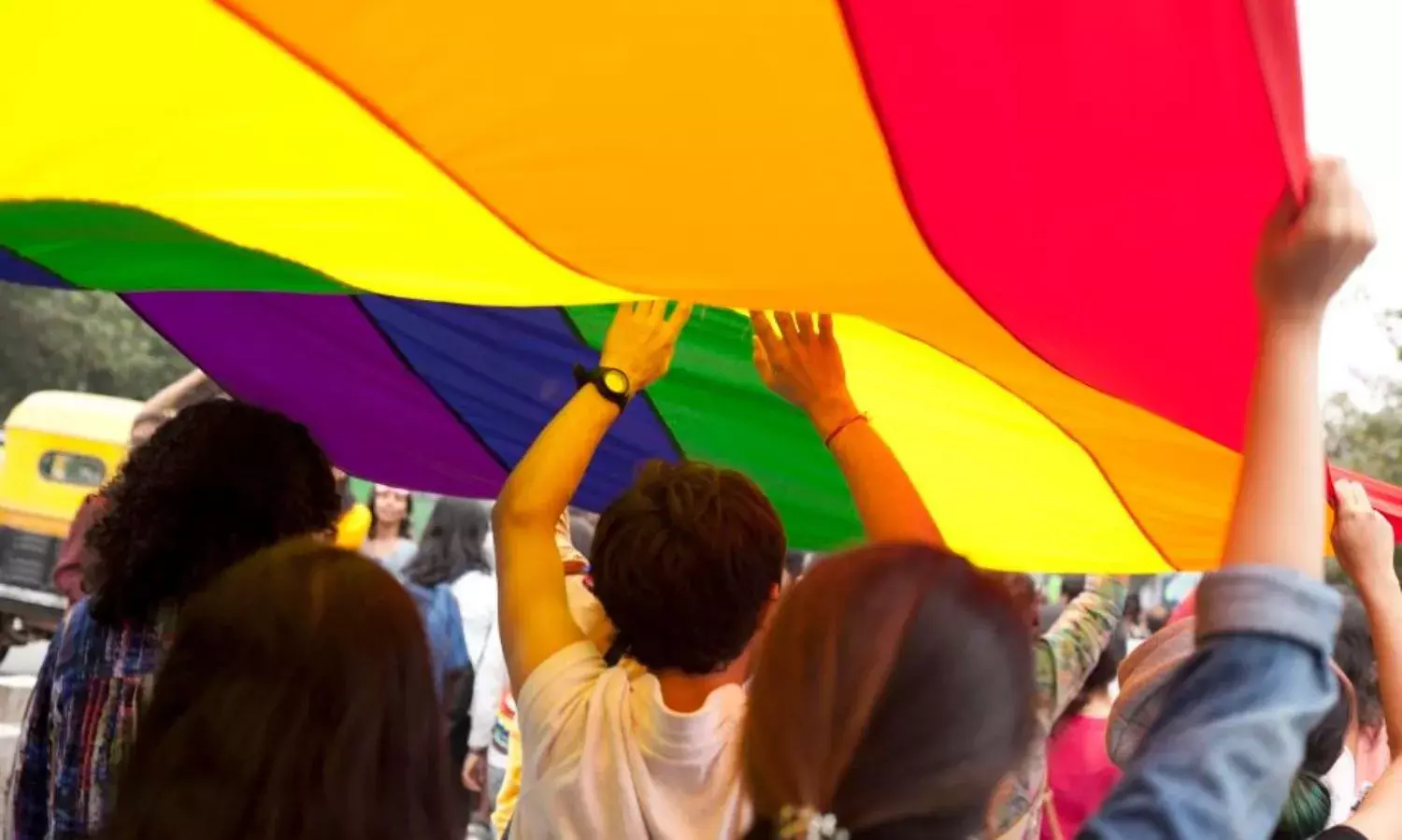Why Queer Health Concerns Need to be the Focus of National Policy
The MCI curriculum still describes sodomy and lesbianism as sexual offences

CHANDIGARH: The medical fraternity here has along with several prominent social organizations given a call to place the health concerns of the lesbian, gay, bisexual, transgender or transsexual, queer or questioning and intersex (LGBTQI) community at the centre of national health policies.
The call came at India’s first national-level symposium on LGBTQI health held last weekend at the Postgraduate Institute of Medical Education and Research (PGIMER) in Chandigarh.
Calling for advancing research on LGBTQI health, the over 180 experts present said that “an official national health research agenda on LGBTQI populations needs to be prepared by the Department of Health Research in the Ministry of Health” and that adequate funding should be allocated specifically to research on LGBTQI people.
Evidence from existing published studies and scientific reports should also be used to formulate national health policies and programmes for LGBTQIs.
Importantly, the view was expressed at the meet that overall, health-related research among LGBTQI people needs to move beyond the risk of HIV and other sexually transmitted infections, to comprehensively address a range of physical and mental health needs and social well-being.
It was pointed out that the studies conducted need to have appropriate research approaches – qualitative, quantitative and mixed methods approaches. And that there should be longitudinal studies to follow up on LGBTQI health needs, including the impact of stigma and societal discrimination on their physical and mental health.
Dr.Venkatesan Chakrapani of the Department of Community Medicine in the School of Public Health at PGIMER told this reporter, “Ever since the decriminalisation of the LGBT community we have been working to bring their health aspect in focus at the national level, while looking beyond HIV transmission. In hospitals across the country there is a sheer lack of understanding about the medical needs of LGBTs.”
Chakrapani further emphasised upon the struggle of community members right from the time they approach a medical institution. “Some may not know whether they have to stand in the line of males or females when registering as patients. Staff may not know in which ward to admit them during treatment or recovery. There needs to be a much greater understanding of their needs while taking care of the aspect of inclusion.”
It was felt that two major Supreme Court verdicts – NALSA 2014 which declared transgender to be the third gender with equal fundamental rights, and Johar 2018 that decriminalised consensual sex among all adults – need translating into inclusive policies in the healthcare domain.
Laws mandating non-discrimination on grounds of sexual orientation, sexual identity or sexual behaviour also need to be drafted and enforced.
“Policies to provide gender-transition related services and sensitive management of intersex variation are needed. Free or subsidised gender transition services, including hormonal therapy and gender-affirmative surgeries, for trans people, and sensitive surgeries, if required, for intersex people need to be provided in government hospitals after proper informed consent – at least in tertiary level government hospitals to start with,” the experts underlined.
They further stated that “national guidelines on providing gender transition services and management for intersex people need to be developed and finalised at the earliest.”
The participants at the meet were categorical in demanding that surrogacy laws and policies on artificial reproductive technologies should take into account the needs of LGBTQI people as well.
They further sought that proper consent and assent is needed from trans youth and intersex people who are legal minors, before irreversible genital surgeries are performed. At the same time, gatekeeping by medical providers should be cautioned against, and parents’ assent must not be required of individuals above 18 years of age.
The medical fraternity needs to understand the implications of the NALSA verdict, which recognises changes in legal name or gender identity even without surgery or endocrine therapy. In other words to recognise that gender and sex are different, and individuals’ gender choices need to be respected regardless.
Stress was also laid on having medical, nursing and paramedical curricula provide correct information about LGBTQI people. Continuous Medical Education Programmes on LGBTQI health should be initiated by the medical professional associations in India.
The experts’ draft recommendations “urge the Medical Council of India to review its recent (2018) Competency Based Curriculum which still contains certain inaccuracies regarding the representation of LGBTQI issues, including considering ‘sodomy’ and ‘lesbianism’ as sexual offences without regard to the issue of consensual relationships, which have been decriminalised by the Supreme Court of India.”
The physical and mental health issues of lesbian, bisexual and queer women, and of trans masculine persons or trans men are the least understood by healthcare providers and health policymakers, it was noted.
Similarly, the differences between intersex people and transgenders are often misunderstood, and the two conflated.
The event was organised in collaboration with civil society agencies like the Humsafar Trust in Mumbai, SAATHII and C-SHaRP in Chennai, and the India HIV/AIDS Alliance in Delhi.
A PGIMER spokesperson said, “There is a growing national commitment to advance the health of LGBTI people. However, to convert these positive developments into actions, concrete steps need to be taken. LGBTI-specific health issues need to be explicitly included in government health policies and programmes and in the delivery of stigma-free care across public and private health sectors.”
“Unethical and unscientific practices such as ‘conversion therapy’ to alter gender and sexual orientation continue to hold sway,” they added. “Further, little is known about the perspectives of intersex people in India on the surgeries they are subjected to, often without proper informed consent.”
(Photograph: Representational image by KARTHIK K SHETTY)



